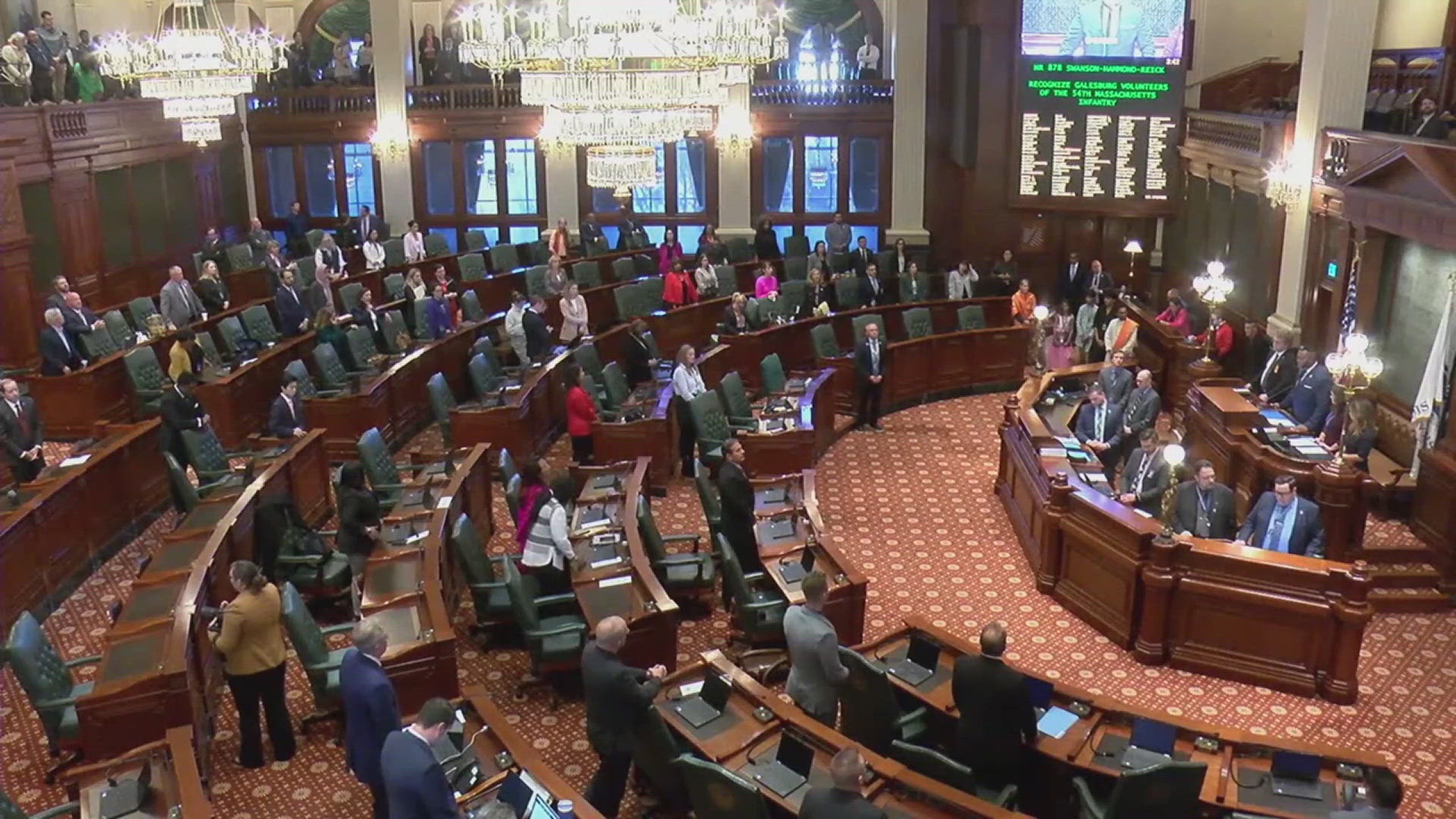SPRINGFIELD, Ill. — Lawmakers gathered in Springfield on Tuesday for the Illinois General Assembly's veto session.
State lawmakers convene for two separate legislative sessions during the year. The first is the spring (or regular) session, which spans from January through the end of May and adjourns once the state budget has been passed. In the fall, lawmakers return to the Capitol for a veto session that lasts two weeks.
The 2024 fall veto session takes place from Nov. 12-14 and Nov. 19-21. While Gov. JB Pritzker did not veto any bills this year, the six-day session gives lawmakers a chance to address bills that died in May.
State Rep. Dan Swanson, R-Woodhull, said although there might not be a lot of real action, lawmakers will engage in behind-the-scenes discussions over the next two weeks.
He said the second week also serves as a training opportunity for freshman members.
"They might learn how to present what the budget is and all those types of newbie things."
"Veto session is an opportunity for the legislature to get back together after the summer and primarily consider any bills that the governor has vetoed in that time since we left in May," State Sen. Mike Halpin, D-Rock Island, said.
Halpin said the time off gives stakeholders a chance to negotiate bills over the summer and come to an agreement.
"We also take the opportunity to address bills that maybe couldn't get done in time for May," he said.
However, politicians on both sides of the aisle expect it to be a quiet week in the state's capital.
"You know how rumors are. Rumors are we won't be there on our Thursdays," Swanson said.
Halpin believes it's because the general assembly has done a good job planning ahead the last few years. He also said few major state emergencies in the last six months make for a lighter agenda.
"We really haven't seen too many of those things this summer where we really need to take immediate action," Halpin said.
However, Swanson said next year's budget will be a focus of his time at the state capital. The governor's office predicted a budget deficit of $3.2 billion.
"We've got to figure out what's going to happen there," Swanson said. "We certainly don't want to see it raise any taxes to make up the difference."
Halpin said changes could still be made in budget predictions.
"I think the office of management budget does a good job of being conservative in their estimates," he said.
Both politicians said are looking toward the spring session for more action.
"It becomes a game of planning that we really need to focus on," Halpin said.
"There is a lot of discussion about lame duck coming right after the first year," Swanson said. "That's where a lot of craziness takes place."

